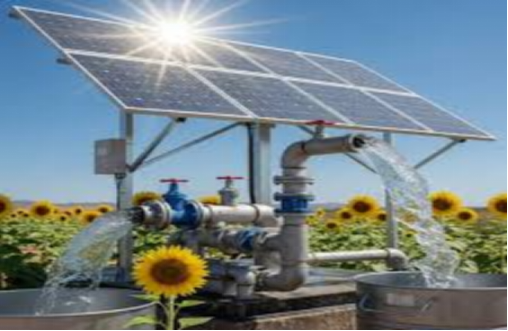Generation

Ethiopian Solar Energy Development Association Calls for Policy to Make Solar Energy Accessible

The Ethiopian Solar Energy Development Association (ESEDA) has stated that a policy supporting the solar energy sector is needed to make solar power more accessible.
In light of the opportunities and challenges in expanding solar energy use in Ethiopia, the Ministry of Water and Energy, the Global Solar Alliance, and other stakeholders held a panel discussion yesterday.
During the discussion, ESEDA Executive Director Mrs. Yemesrach Sisay told Addis Zemen that most solar energy equipment is imported, making it difficult for communities to access at affordable prices. While the macroeconomy has improved foreign currency availability, challenges remain in accessing forex.
To address these issues, she emphasized the need for policies that enable farmers to access low-interest loans, incentivize suppliers in the sector, and establish guidelines to facilitate operations in the solar energy industry.
Mrs. Yemesrach also highlighted a significant awareness gap in solar energy adoption. She noted that if solar-powered water pumps were made accessible to farmers, they could transition from rain-dependent farming to producing three times a year.
While most solar equipment is currently imported, efforts are underway to improve local assembly and manufacturing conditions. The association is also working to enhance the capacity of institutions in the sector.
Solar Energy Currently Limited to Lighting and Cooking—Potential for Broader Use
Deputy Minister of Water and Energy, Engineer Sultan Woli (Ph.D.), stated that solar energy is currently used mainly for lighting and cooking but has greater potential for agriculture and other services, which would significantly benefit the economy.
Expanding solar energy could improve living standards, boost agricultural productivity, and create markets for processed goods. However, since government investment alone cannot bring about this change, all development partners must participate.
The Deputy Minister noted that the sector is open to both domestic and international private investment, partly due to recent economic reforms. Updates have also been made to the investment directive to facilitate growth.
Public Awareness and Financial Constraints Remain Challenges
He pointed out that while the public is well-informed about hydropower, there is a lack of awareness regarding solar energy benefits. Additionally, farmers' limited financial capacity poses a challenge.
To overcome these obstacles, the ministry is working closely with the private sector.












